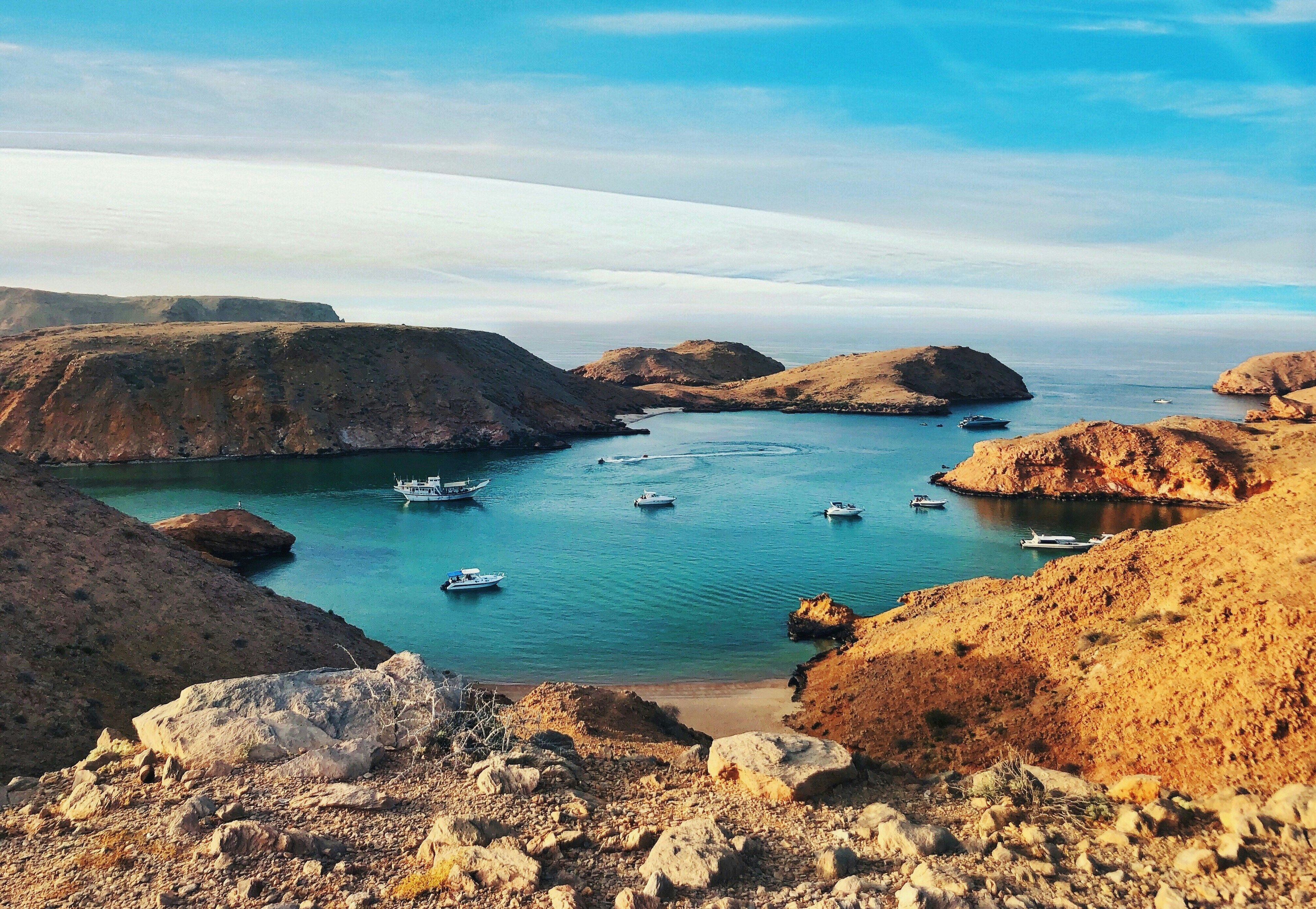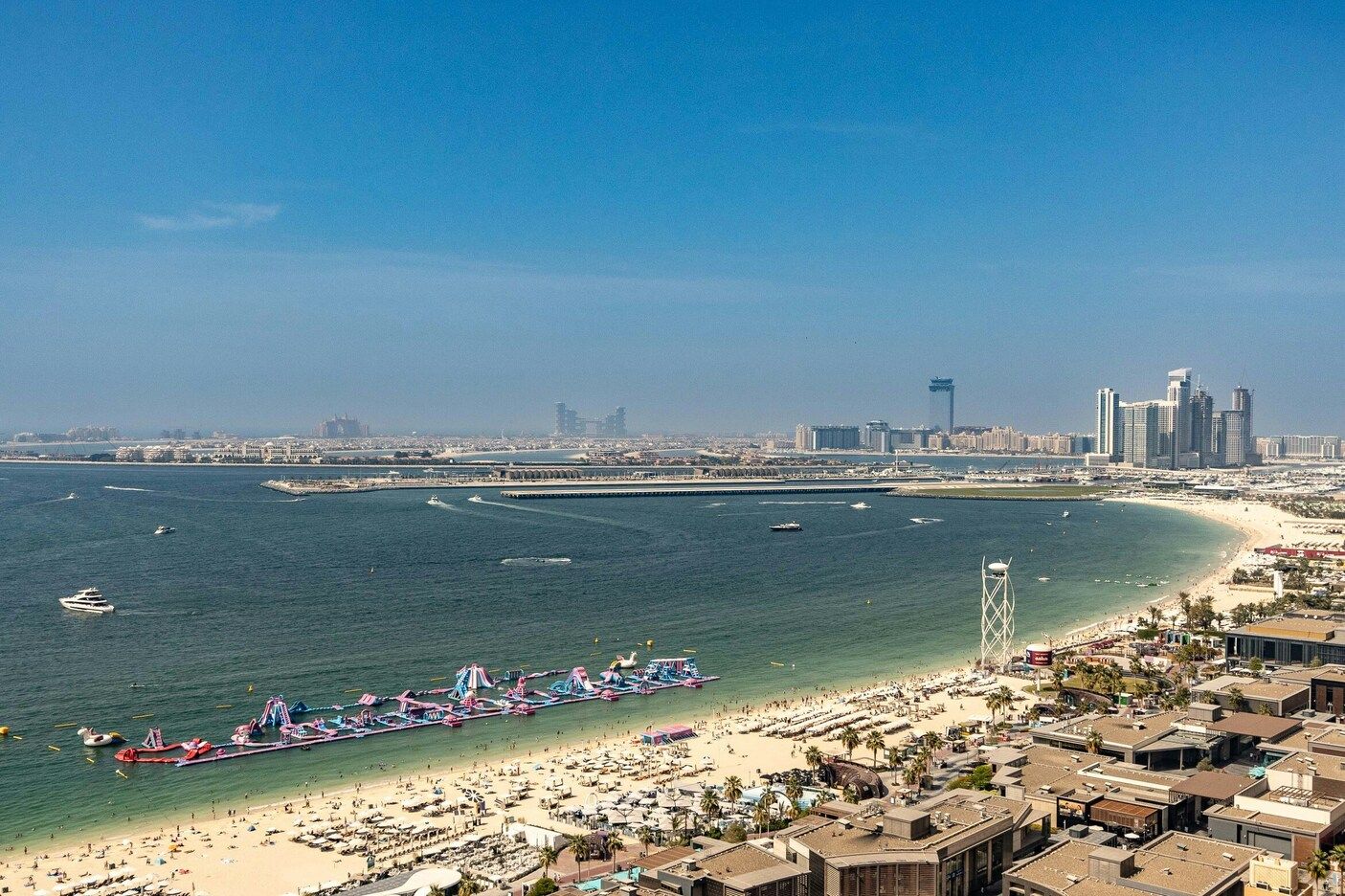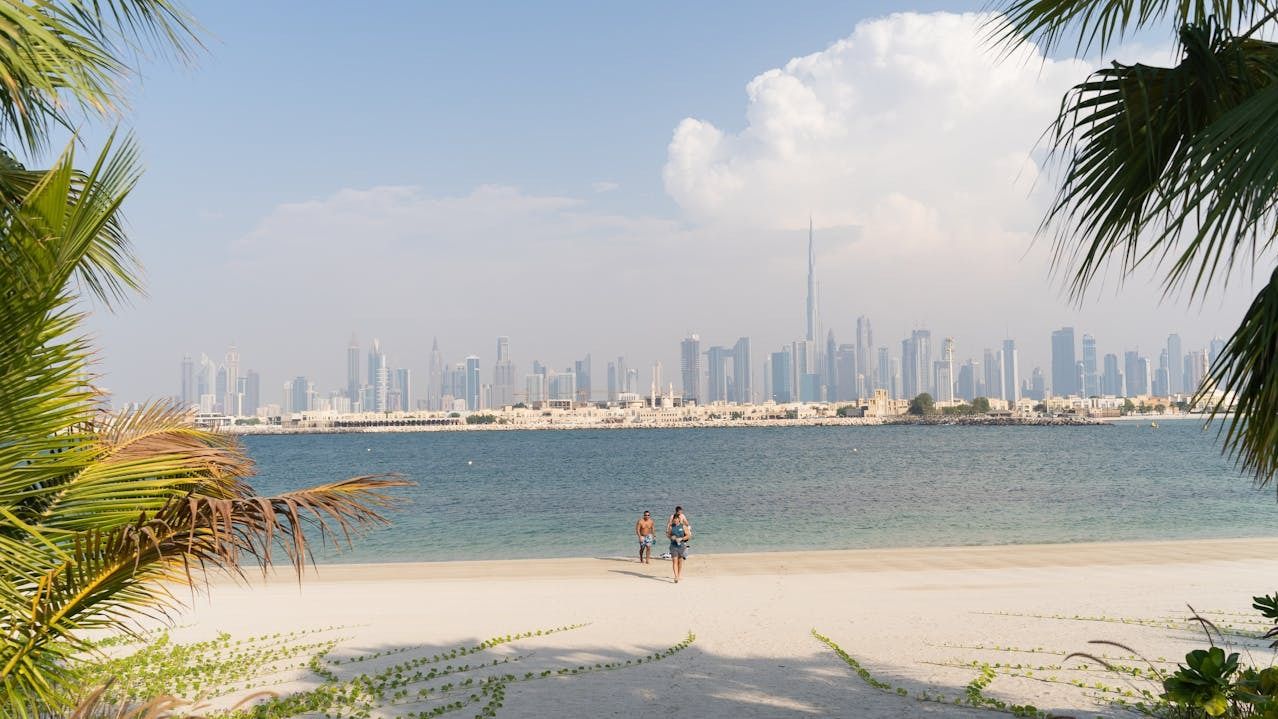
25/07/2025
LOT will not resume its seasonal route to Innsbruck
Copy link

From a simple fishing village to a modern city full of skyscrapers and luxury hotels - when was Dubai founded and what is its history?
Dubai has not always been a city of business, modernity and luxury. Just a century ago, most men in Dubai were involved in pearl fishing and no one had heard of oil production. The path to the city's wealth and development has led through difficult times and the challenges and changes that residents have had to face. Dubai's beginnings as a city were not heralded by the fact that the world's tallest building and hundreds of 5-star hotels would stand here in the future. When was Dubai founded and how has this modern metropolis developed?
Dubai was built in the desert, but the desert wasn't always there. Over 3,000 BC, the area of Dubai was a vast mangrove swamp. The swamp dried up around 3,000 BC and was first settled. What were the origins of Dubai as a settlement? The settlers were nomads, grazing cattle. 2,500 BC they established the first date tree farm and began an era of agriculture and farmland in Dubai that lasted for the next 2,000 years. It was not until the 5th century AD that the modern Jumeirah district (where the Burj Al-Arab is located) began to serve as a transshipment and rest stop for trade caravans en route from Oman to present-day Iraq.
The inhabitants of the city of Dubai engaged in fishing, pearl fishing, building and repairing boats, and feeding and sheltering merchants on the route across the Arabian Peninsula, according to the first historical mention of Dubai in the book Book of Geography by Spanish-Arab geographer Abu Abdullah al-Bakri. At that time, around 1000 AD, merchants flocked to Dubai and sold gold, spices and textiles, and the city's economy was mainly based on pearl fishing.
In 1793, the Bani Yas tribe took control of Dubai and settled in Abu Dhabi. This was the moment when Dubai lost its independence. No longer independent, the city did not stop developing. In 1787, the Al Fahidi Fort, the Dubai Walls and some of the city's oldest buildings were built. Unfortunately, not all of them have survived to this day. The suspension of arms on the sea lanes by the British in 1820 contributed to the city's booming trade and accelerated development. Dubai became a leading trade centre, maintaining contacts with the most powerful countries in the world.
Everything changed around 200 years ago. In 1833, Maktoum bin Butti of the Bani Yas tribe, together with his people, arrived in the Dubai Creek area, settled and declared Dubai's independence from Abu Dhabi. This is a key event in Dubai's history. 1833 is considered the year Dubai was founded, although at that time it was still just a fishing village. To this day, the city and emirate of Dubai is ruled by the Al Maktoum family. And although a colourful fishing village with spice merchants and pearl fishermen has turned into a modern city, the Al Maktoum dynasty continues to lead Dubai towards development and a better future.
After the leadership of the Al Maktoum family, Dubai's development gained momentum and it became one of the most important commercial centres in the Middle East. In 1894, the Dubai authorities decided to exempt incoming merchants from outside the region. This resulted in the accelerated development of trade on a huge scale. This policy helped cement Dubai's status as a free port, officially declared in the early 20th century, which was essential for attracting traders. Merchants from all over the world, especially from the Arabian Peninsula and present-day India and Pakistan, did business in Dubai. Dubai's importance in the region grew. This was the landscape of the city with major and minor crises until a key moment in 1966: the discovery of oil.
The discovery of oil was a key event in Dubai's history. The late Sheikh Rashid bin Saeed Al Maktoum used the oil fields to develop Dubai and build the city from scratch with modern architecture and residential buildings. This investment fueled the development of Rashid Port, Jebel Ali Port, the Dubai Drydocks, and the Dubai World Trade Centre, transforming the city into a modern commercial center. This was necessary as Dubai's population grew by several million over the next few decades.

The history of the United Arab Emirates is long and interesting. We today will briefly discuss the country's declaration of independence. Until 1971, the United Arab Emirates was a British protectorate. In 1968, the British government announced its intention to withdraw its troops from the region within the next three years. The Sheikhs from all the emirates had already started to get along and form a federation of emirates. Few people know that initially the UAE was also to include Qatar and Bahrain. It is also interesting to note that the emirate of Ras Al-Khaimah only joined the federation of emirates a year after independence was declared. Independence was declared on 2 December 1971 by six emirates: Abu Dhabi, Dubai, Ajman, Sharjah, Fujarah and Umm Al Quwain.
Dubai's growth in the 20th century has been a fast track to success and the development of the state. After the discovery of oil fields, the urban changes in Dubai began. Like mushrooms after the rain, skyscrapers, state-of-the-art business centres and residential areas began to grow. This modern development was also characterized by extensive land reclamation projects, which created new coastline for the iconic Palm Islands and The World. A large emigration to Dubai also began. What has influenced the population growth in Dubai? Cooperation with Indian and Pakistani companies and the possibility of a good income has attracted millions of people from India and Pakistan, and hundreds of thousands from Southeast Asia, to Dubai. The last 30 years have seen modern development and established itself as the business capital of the Middle East. How did Dubai become a commercial hub? The city began to strategically diversify its economy beyond oil, focusing on sectors like tourism, international finance, and real estate. In a few decades, Dubai has grown from a small fishing village to a modern city and one of the best places to live in the world.
The modern history of Dubai is inextricably linked to Two Continents, formerly Travels with Hubert. From a small company, to the largest Polish and large international travel company and real estate agency. If you are interested in going on holiday to Dubai, bet on a Dubai holiday with Two Continents.

What are the most important facts about Dubai's history? Here is a list of the most important facts about Dubai's history:
Thousands of years of development of the city, various administrations and changes of government, as well as the movement of the population have produced a unique culture and traditions for Dubai. These are, of course, strongly linked to the traditions of the other 6 emirates that make up the UAE, but Dubai's traditions and culture have some differences and unique characteristics. The port city, the pearl fishermen and the trade route, and the life of the desert had a huge impact on the native people of Dubai. You can learn about their history, the history of Dubai and the oldest part of the city on a tour of Old Dubai with a English guide. You can buy tickets to the most important museums in Dubai and other cities in the United Arab Emirates at attractions in Dubai from Two Continents.
The city of Dubai is more than 1,000 years old, although it officially declared its independence in 1833, and settlement in the Dubai area appeared as early as 100,000 years ago. The most common age figure for Dubai is around one thousand years, when the first references to the place appeared in world literature.
Dubai became a city in 1833, when Maktoum bin Butti of the Bani Yas tribe, together with his people, arrived in the Dubai Creek area, settled down and declared Dubai's independence from Abu Dhabi. Dubai still looked like a fishing village at the time, but it began to operate as an independent and autonomous city.
The most important events in Dubai's history were the first settlement of the area by nomads 3,000 BC, the declaration of Dubai's independence from Abu Dhabi by the Al Maktoum family in 1833 and the official creation of the city, and the discovery of oil in 1966.
See other news

25/07/2025
LOT will not resume its seasonal route to Innsbruck

25/07/2025
LOT is in talks to launch flights from Poland to Oman

24/07/2025
How and when was Dubai founded? Facts about the UAE's largest city

24/07/2025
What are the people of Dubai called?

24/07/2025
Where is Dubai located? Find out the location of the UAE's largest city

24/07/2025
Alcohol in Dubai - where to buy and what are the prices?

24/07/2025
The Wealth of Dubai: What makes Dubai so rich?

24/07/2025
Accommodation in Dubai by the beach – top hotels with sea views

24/07/2025
Dubai Singles Attractions – A Guide for Solo Travelers

24/07/2025
Where to go on holiday in August? Discover the best holiday destinations in August!